Miriam’s Journey: A performing arts teacher shares her experience with triple negative breast cancer
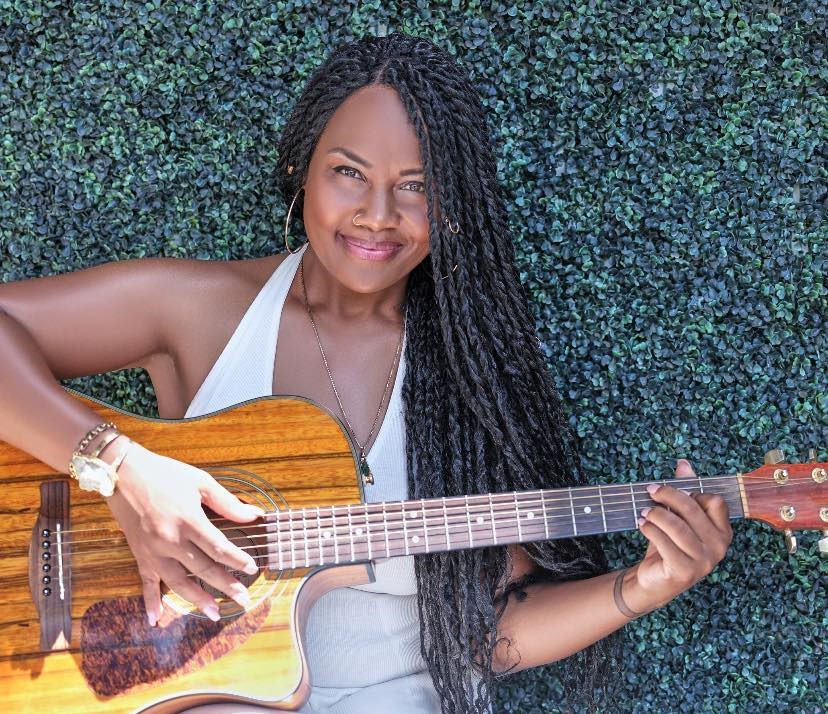
Miriam Dance was standing in the Riviera Ridge School costume room in early 2020 when she first felt pain in her breast. Already stressed by the start of the global pandemic and upset that COVID-19 had halted her work as a visual and performing arts teacher, Miriam had to muster all the courage she had to investigate this lump. She underwent a biopsy of the mass in her breast, and the results confirmed that the 35 year-old had triple negative breast cancer, a more aggressive subtype which tends to grow and spread more quickly, and is more common in people under 40 or who are Black. Miriam’s head swirled with questions on how this happened despite her young age and no family history of breast cancer. “I use the word devastating to describe it,” recounts Miriam. “I was already devastated due to my job, and finding out I had cancer was a scary, lonely experience.”
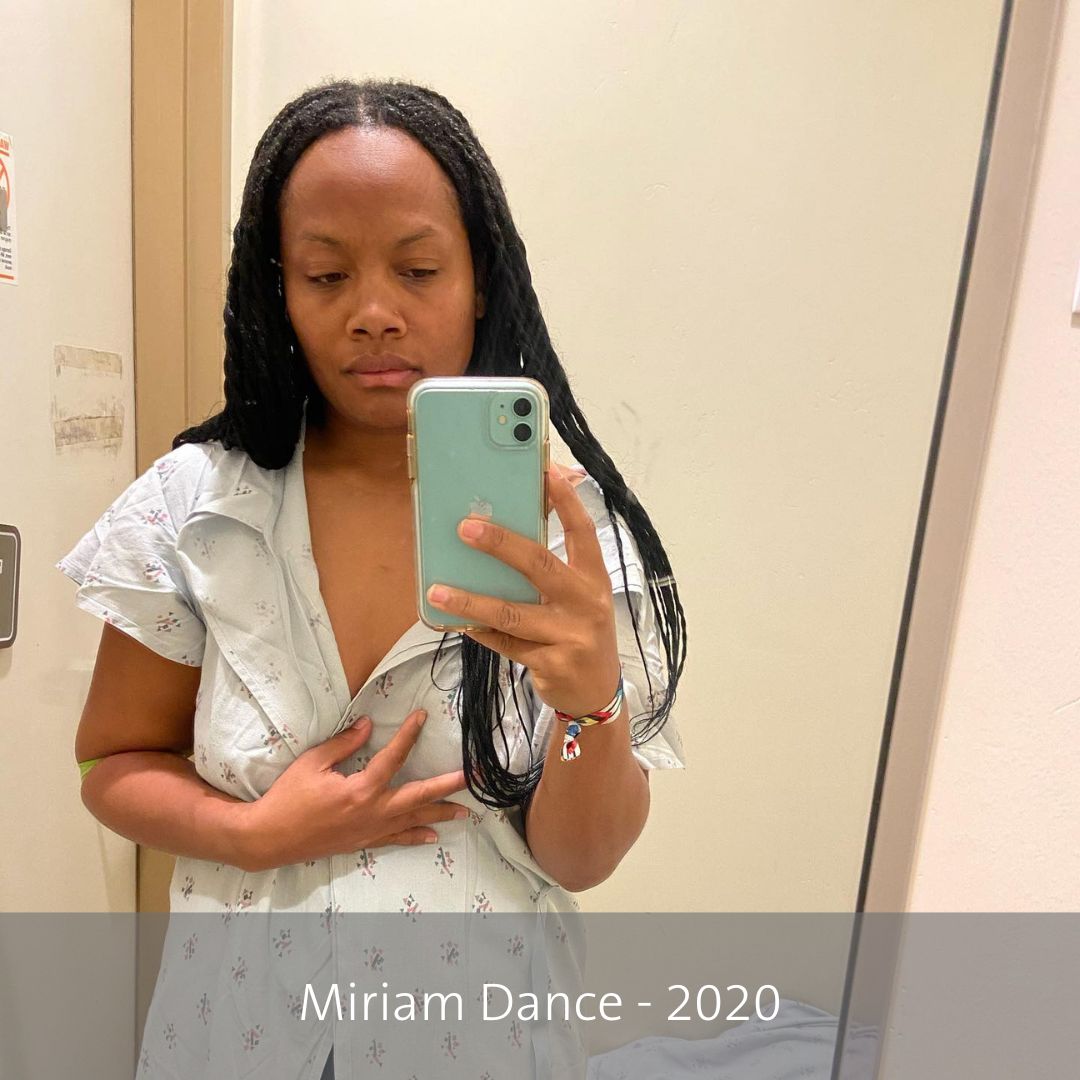
Miriam followed up on a referral she received to see breast surgeon Katrina Mitchell, MD, IBCLC, PMH-C, FACS at Ridley-Tree Cancer Center, just a short, five-minute drive from her home. When Miriam met with Dr. Mitchell, her fears and anxiety were calmed. “Dr. Mitchell was easy to talk to and she made me feel comfortable. She knew right away what the best approach would be and she made the process easy. I was able to ask her questions and she made everything really clear. Her positivity and confidence put me at ease,“ says Miriam. Dr. Mitchell believed that the best way to eliminate Miriam’s cancer and preserve her breast would be chemotherapy first, to shrink the tumor, a lumpectomy next to remove what was left of the tumor, and then radiation therapy. “For women in their 30s, breast conservation is especially important in terms of body image and function,” explains Dr. Mitchell. Because Miriam, like many young breast cancer patients, had concerns about how her treatment could impact her fertility and future health, Dr. Mitchell knew the emotional support she’d receive would be as valuable as the discussion of Miriam’s medical plan. “It is so important to hold patients, to talk through all the treatments and interventions related to their care, to sit in that space with them and take care of the person as a whole,” comments Dr. Mitchell.
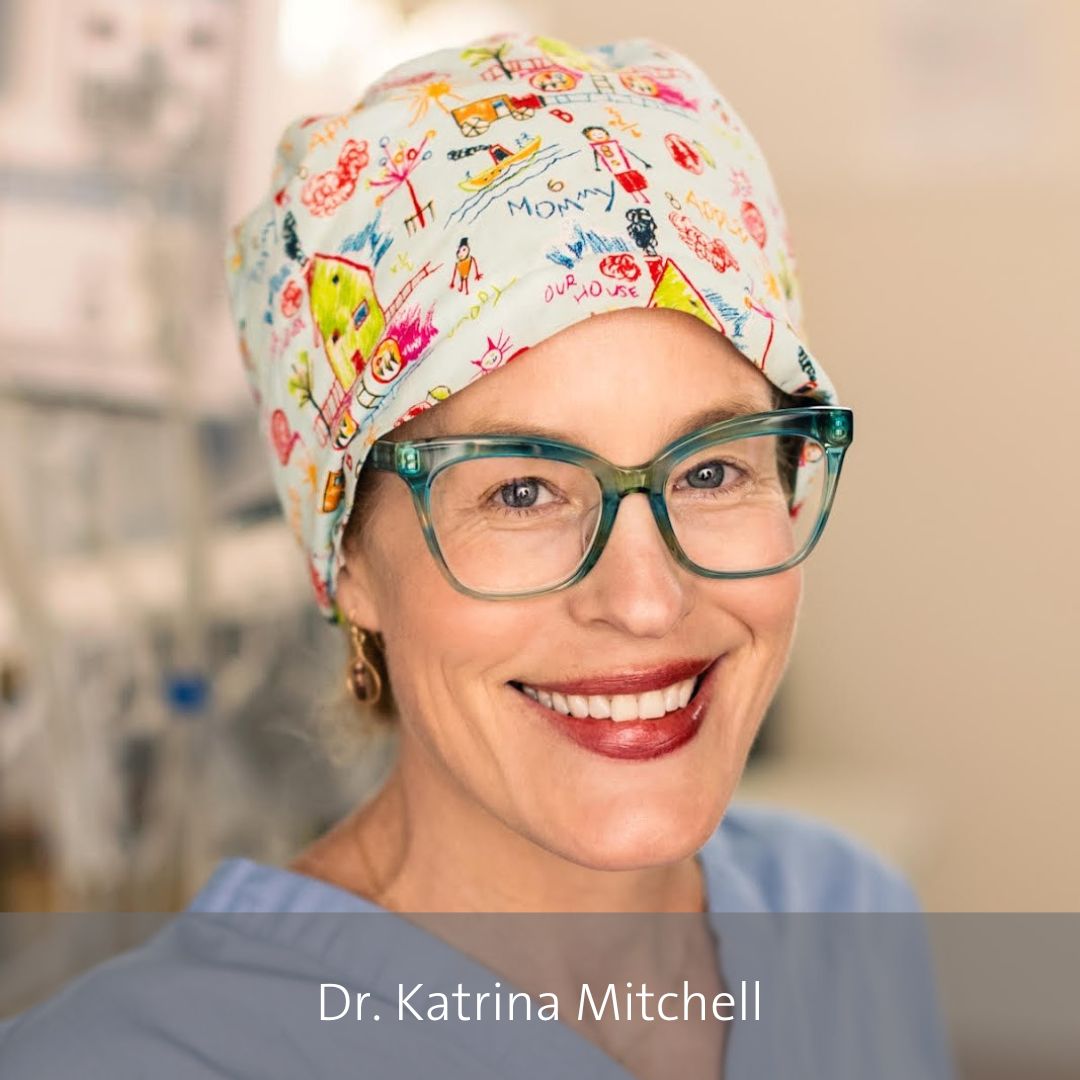
Miriam felt scared to start chemotherapy, as she processed feeling sick and the likelihood that she’d lose her hair. “As an African-American woman, I have had hair battles all my life. I decided to cut it off myself so I could decide when it went. It was hard but also pretty freeing,“ she admits. What did help to reduce Miriam’s fears and sadness was the personalized, comforting care from Ridley-Tree’s team of infusion nurses. “Each nurse got to know me and took time to figure out what I needed. When I walked in, they had my warm blanket and juice ready. I felt like it wasn’t just a job for them.”
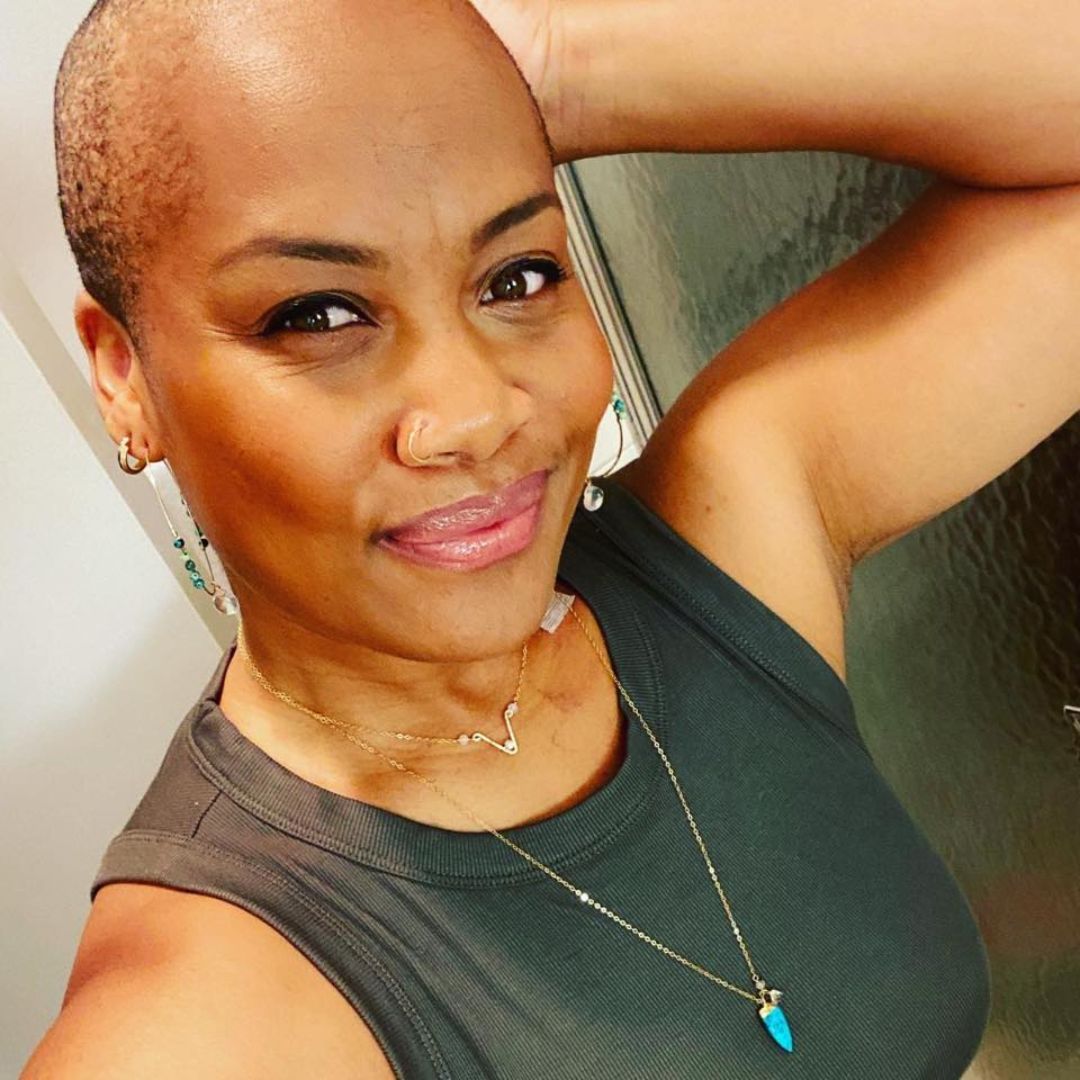
An accomplished singer, songwriter and performer, Miriam studied playwriting, theater and directing at UCSB. During chemotherapy, she wrote song lyrics to capture the deep emotions she was feeling and to encourage herself to stay strong and not give up. “Singing and songwriting is my passion, my outlet, it’s how I express myself,” she shares. “My song, Journey, helped me to envision the finish line.” Miriam began the creative process for herself, but she discovered she’d like to use her music to inspire others. “The lyrics say ‘Be strong, this is your journey.’ I want to give others hope. Everyone who is alive is going to be touched by cancer, through someone they know or themselves, and it is more important to try to help them get through it,” she adds.

While Miriam worked out her emotions through her music, 13 rounds of rigorous chemotherapy did their job. Her tumor had shrunk considerably, allowing Dr. Mitchell to remove what was left. During the lumpectomy, Dr. Mitchell used wire-free localization, a technique where tiny, nonpalpable markers are implanted beforehand, which during the procedure guides the surgeon to remove the smallest amount of breast tissue with great precision. With surgery behind her, Miriam transitioned into the third phase of her treatment: radiation therapy. She says the radiation department had a “family feel” to it, and she appreciated how the therapists played her favorite tunes in the treatment room to keep her relaxed.

As tough as the trifecta of cancer treatments were on Miriam’s body and spirit, they left her cancer-free. “It really showed me I could face a lot of things, and showed who I was to the core,” asserts Miriam. “I am really grateful for how my body held up after all it went through. You have to use all the resources you have to take care of it, because you never know what tomorrow holds.” Her outcome, however, is not standard for most Black women. “They have a worse prognosis and worse outcomes with breast cancer, than women not of color,” reports Dr. Mitchell. In fact, Black women have the lowest 5-year relative breast cancer survival rate compared to all other racial/ethnic groups for every stage of diagnosis and every breast cancer subtype, according to the American Cancer Society. While Miriam was elated about the success of her own treatment, she felt heartbroken knowing other women like her were not as lucky. She ruminated on the reasons why more Black women were dying of breast cancer than other women. “It did make me think, are they not receiving the proper attention and care that they deserve and need?” she questioned. During her upbringing, Miriam observed that the mindset of Black women surrounding her was different. Tending to health was a secondary concern. “In a place of poverty, you don’t think about those things and you try to avoid them,” she says. “When you go to the doctor, you think about what it’s going to cost you.” Miriam slowly learned to build her confidence up so self-care became a normal practice, and it felt OK to ask questions about her health, and important enough to pursue the answers. “Taking care of yourself needs to become a habit. African-American women need to know the importance of checking themselves and getting those regular checkups,” she stresses.
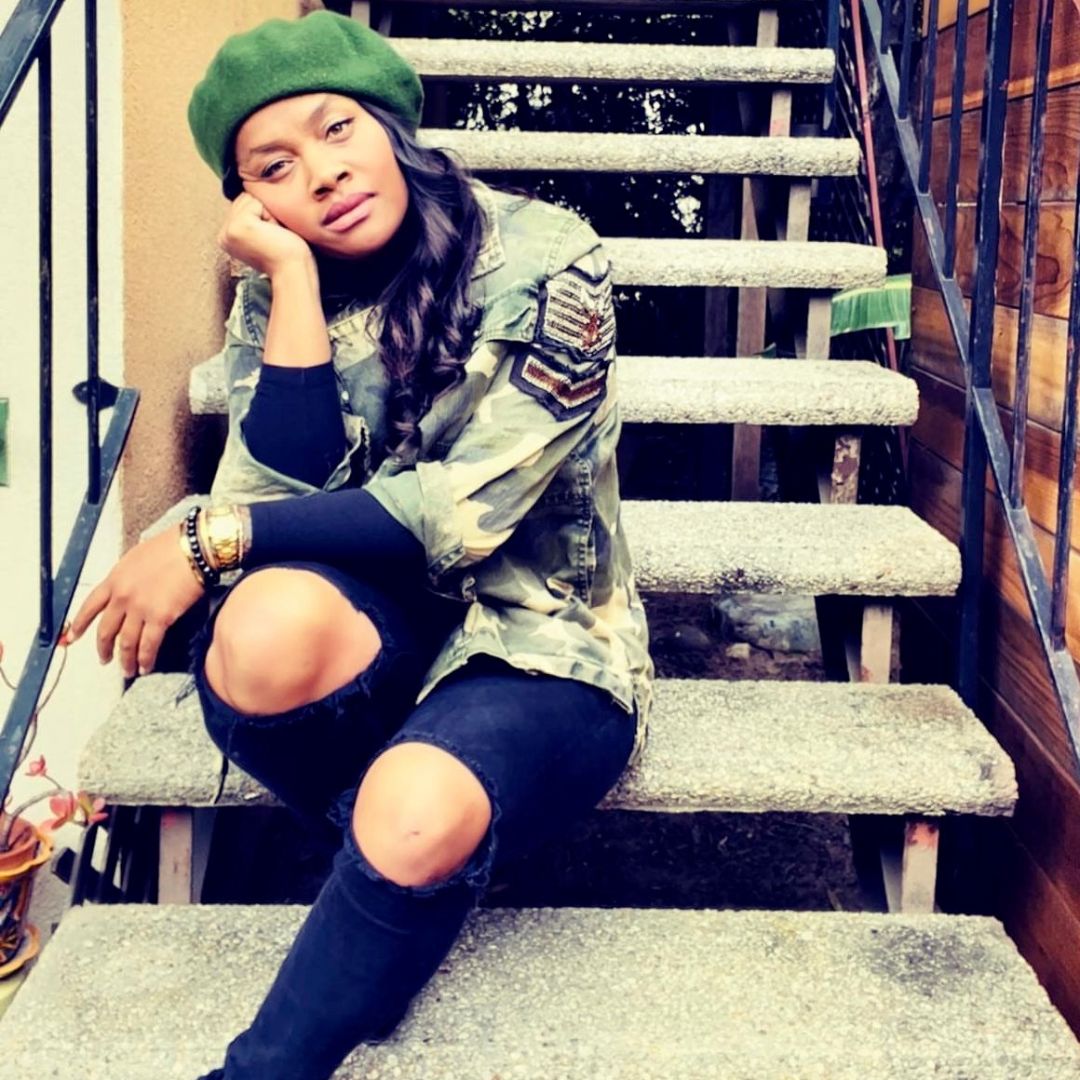
Miriam is now back with her students at Riviera Ridge, and spends her off hours developing her music career by performing in an array of venues with esteemed artists and bands. Her breast cancer experience spurred subsequent single releases which all have a recurring thread about overcoming the hardships in her life, and how cancer has changed her perspective. “Time is precious. Cancer showed me how to use my voice for others, and how having the right community and the right people around you is so important,” notes Miriam. “I’m so grateful Ridley-Tree was right here, right in my backyard.”
To learn more about the breast cancer program at Ridley-Tree Cancer Center, click here.